When it comes to balancing your home’s chi and ancient art, Feng shui is the most important concepts, and you may have come across it one too many times before. But what exactly is Chinese Feng shui? How old is the principle of Feng shui, and what exactly does it mean?
What is Feng Shui?

In other words, feng shui relates to the interactions of human beings and the environment. The feng shui principle and way of life enables persons who practice it to influence the energies they interact with, helping them achieve specific improvements and successes in life. Feng shui can also be defined as the ancient (scientific) Chinese practice and the art that utilizes the laws of the earth or geography and the heavens or astrology to influence the flow (directional) of the Chi or the circulating life energy. This is why Feng literally translates to the win while Shui is water, literally. What’s not mentioned often is the fact that the original designation for the discipline of Feng shu is Kan Yu that is translated quite literally to heaven and earth.
Well, Feng shui can be defined as an ancient art or a science that was developed more than 3000 years ago in China. The most direct translation of feng shui relates to the actual meaning of the concept. Feng (风 fēng) translates to mean the wind, while Shui (水 shuǐ) refers to water. According to the Chinese cultures, water and the wind are both elements that symbolize and also associated to good health; and in the same regard, feng shui is used to symbolize good fortune. And based on the Taoist visions and school of thought, along with the Taoist understanding of nature, feng shui and the ideology behind it shows and represents the belief that the land is alive and filled with a specific kind of energy known as the Chi.
To attain and enjoy the benefits associated with feng shui, you’d have to influence the Chi, and this is possible through specific designs and the positioning of things in your surroundings to ensure harmony with all the principles of the natural flow of energy. What this means is that the new trend where home, office, and overall space designs are based on a certain order that ensures flow honors and follows the principles of feng shui, creating harmony in homes, while also bringing good fortune to the persons who use or reside in that space.
Essentially, the laws that apply to the feng shui systems are based on the need to ensure flow and also a balance of energies. And once the harmonious state is attained and there is a balance of energies in the space, good fortune and good health will come to the lives of the persons inhabiting the space. Today, the laws and systems applicable in spatial arrangements and orientations apply the concept of feng shui. This concept goes into everything from building designs, furniture placements, the kind of possessions purchased, and even the directions that the body sits or sleeps.
Further investigations into the aspect of feng shui reveal that this ancient Chinese practice of feng shui is a principle or technique that is used to balance the yin and yang while also improving the flow of energy or Chi. It’s not just used in homes and offices or furniture and decorations, but also in planning entire cities. All these because of the ancient Chinese people’s belief that placement and specific arrangements for things would create positive Chi and encourage good health.
But Feng shui is not just about the placement of objects in a way that ensures the smooth flow of Chi; it also involves the 5 Elements. Essentially, the Five Elements are critical in Chinese culture because of the Chinese reliance on astrology in finding the correlation between the universe and mankind (heavens and the earth) and also in the expression of the polarity in understanding the concept of the yin and yang.
So, along with the cardinal points or directions, North, South, East, and West were enlarged by the Chinese, and they also one more nation at the center of the universe, the Yellow Earth.
Why Chinese believe in feng shui( Chinese Geomancy)?
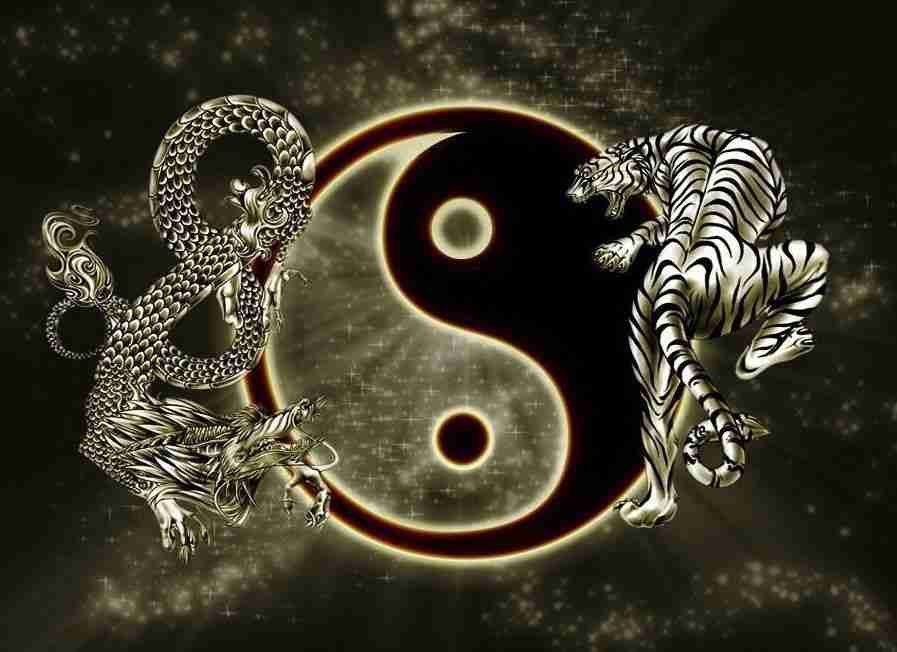
As mentioned above, the Chinese hold in high regard the idea of feng shui and how it influences the balance of energies in spaces and in the body to ensure good health and good fortune.
- Relationships – But good fortune is not the only reason why Feng Shui is a big aspect in Chinese cultures. There is also the fact that Feng shui helps in the understanding of the relationships between mankind and nature.
- Success and prosperity – There is also the fact that feng shui is the art of arranging objects, buildings, and spaces in an environment, bringing the inhabitants of that space peace and prosperity.
- Conscious occupation – Based on these ancient Chinese beliefs, the main idea behind the whole concept of feng shui is what’s referred to as Conscious occupation along with the harmonization of space with the intention of bringing to these spaces positive energy while also positively influencing the people that occupy said spaces.
- Blueprint for balance – the concepts of feng shui and yin and yang intersect here to ensure that there is balance and harmony between the two vital energies. With the yang energy associated with males and being attributed to light and being active, yin or the female energy passive and dark, yin and yang are the two elements that represent opposite forces and their duality, while feng shui is what helps to keep these two vital energies balanced.
Here are the other reasons why the Chinese believe in Feng shui
Feng shui for good luck and wealth
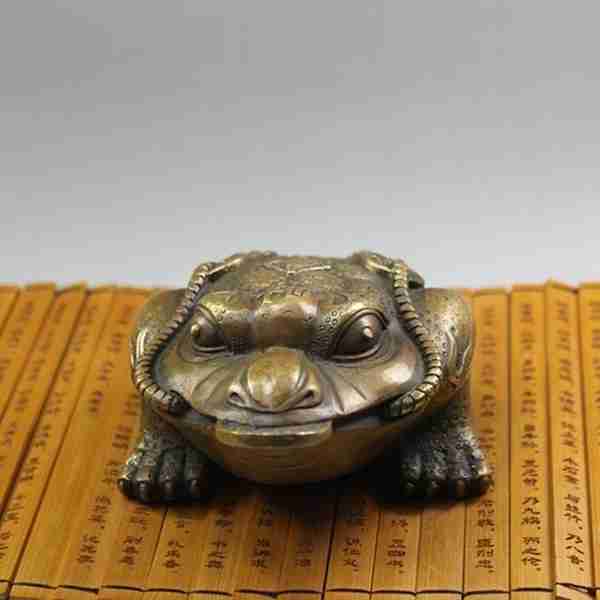
The Chinese (and now the rest of the world) believes that by creating a sense of balance and harmony with nature and between the universe and mankind, Feng shui brings the inhabitants of a home or space good luck, wealth, and prosperity. This is believed to be the case because feng shui is believed to have the power to create more auspicious life situations for anyone looking at and practicing the concept. All that you need for this to happen is to position or arrange the space appropriately, based on the Xun Position. Adding live green plants is said to have the power to activate the Xun position of the Bagua map, bringing good luck and wealth to you. This is believed to be the case because plants are representations of the element wood, which in the Bagua has to do with new beginnings and growth. The color purple is also associated with wealth, and incorporating it in your home or office will active the area of the map associated with wealth – you can use the amethyst crystal for this. Perhaps even the feng shui money tree, or you could go all out and paint your front door red.
Other things you could do include:
- Getting a bowl of ripe oranges because the oranges symbolize wealth and good luck
- Get the feng shui money frog to invite abundance and prosperity
- Collect Chinese coins
- Make use of the citrine crystals to manifest abundance
- Create fountains of wealth
Chinese feng shui for bedroom

Practicing the art of feng shui for your bedroom could be exactly what you need to do to sleep better. All you need to do is to know the rules to follow, what to add and what to avoid in your bedroom. To bring feng shui into the bedroom, follow these rules:
- Right placement of the bed – the bed must be in a commanding position such that you face the door, but you’re not in a direct line with the door – you shouldn’t be in the coffin position in relation to the direction of the door. The headboard must sit right on the solid wall but leave some space on the other three sides. The headboard shouldn’t be on the wall facing the toilet, and the bed shouldn’t be under soffits, sloped ceilings, or low beams.
- Invest in a headboard – the headboard symbolizes stability, as well as support, especially in romantic relationships. But avoid the headboards made of bars.
- Get rid of clutter under the bed
- Reduce the number of electronics
- Get a pair of nightstands
- Get the colors right (feng shui-friendly colors) – think of splashes of red, but more of neutral and relaxing colors like greens, blues, or hues of pink or peach.
- Pick art carefully – stick to family photos, and avoid images of single objects or people if you want to invite partnerships.
- No books in the bedroom, unless they are the books you’re currently reading.
- Other things to remove from your bedroom include home gym equipment, work, and getting the right size of the bed.
- Bring in vibrant green plants and fresh flowers.
- Get linens made of good quality materials and in neutral colors
- Cleanse your bedroom often.
Chinese feng shui for house
Feng shui for the rest of your house could mean doing things like brightening up your entryway, cleaning windows regularly, paying attention to doors and making sure your doors can open completely at 90 degrees, arranging furniture in a commanding position, getting rid of obstacles from the path, avoid clutter, clear spaces often by smudging using sweet orange essential oil or palo santo, and bring in more live and vibrant plants. Don’t forget to offer gratitude.
- Other things you could do for feng shui in your home are as follows: slow down your home’s energy flow by placing furniture and objects strategically and throw in patterned rugs on the floor, some art on the walls, or a round table at the entrance. You should also find statement art pieces that force your guests to stop.
- Incorporating all the 5 elements is also crucial – earth, fire (orange and warm tones or candles), wood, metal, and water. Also, avoid any kind of negative symbolism like traffic signage or literature.
- Maximizing natural light is also important as it keeps you happy and more positive.
Chinese feng shui for business
For business success and the best impact of feng shui, consider doing the following:
- Always have a balance of the 5 elements
- Eliminate clutter on your desk, the office, and the workspace.
- Incorporate an air-purifying plant
- Ensure accurate placement of furniture and objects to ensure feng shui and the right flow of chi.
- Encourage good vibrations by using objects with good connotations and the ones that are in harmony with one another.
Chinese feng shui for kitchen

To have the perfect feng shui kitchen, follow these recommendations:
- The stove’s location is crucial since it represents your career, resources, and nourishment. So, the stove has to sit where you can see the door while cooing, but it shouldn’t be in line with the door. Also, on the stove, you want to double on the burners to increase your opportunities and for prosperity/ wealth.
- You also need to rotate the burners and stop using that one burner you are used to all the time.
- Have a piece of quartz in the refrigerator
- Deep clean the kitchen regularly, and get rid of or repair broken or chipped items.
- Clear your space using salt – use salt to wipe the kitchen, but be mindful about this,
- Avoid toxic cleaning products.
- Stick to colors that are friendly in feng shui, for example, neutral colors, red, white, gray, metal colors, and watery colors.
- Doing all these things in different rooms will encourage good chi and bring you good luck, wealth, great fortune, peace, and overall abundance.
Chinese feng shui for health
According to the practitioners of traditional Chinese medicine, attaining good health is only possible when you are surrounded by good chi, and this is possible through feng shui. Everything in the spaces you inhabit and what you put in your body must encourage good chi, and this means that you should follow the feng shui tips shared above for good health overall.
Feng shui is based on three primary aspects – being alive, connected, and changing. In other words, the principle is run by the belief that everything is alive, connected, and everything changes. But there should be balance in the yin and yang for good health, and feng shui makes that possible.
So, in addition to the recommendations above, you also need to play uplifting music often, have bright lights, and just keep things clean and happy. For these good vibes, incorporate green plants, bright blooming flowers, the right kind of artwork, aromatic herbs, colorful crystals, wind chimes, and a Buddha, invest in good storage, colorful accents, mirrors, happy photographs, black tourmaline, and fountains.
Feng shui(Chinese Geomancy) history and theory
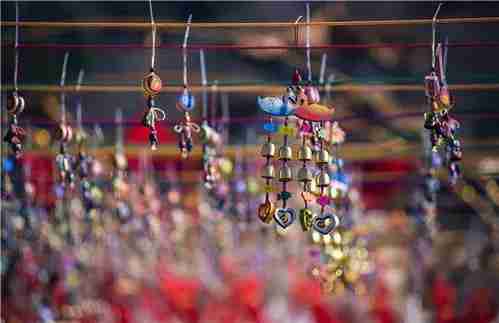
Feng shui is believed to have its roots in Taoist belief around the element known as the chi, which is the life force that inhabits everything on earth. But chi is not a standalone element; this life force is made of the yin and yang, which are the two opposing yet complementary forces that exist together and cannot be separated. According to the Taoist beliefs, balancing yin and yang helps people to improve or enhance the flow of positive chi in all aspects of their life while also keeping off the negative chi. So, with feng shui as the primary method of balancing the yin and yang, you need to work on improving feng shui in all the areas of your life, and you can do this with the arrangement of furniture and decorations, as well as whole buildings and even cities. Going by the ancient Chinese beliefs, arranging things in a certain way would ensure improvement in interpersonal relationships, enhance good health, and also bring you good luck and prosperity.
Feng shui has been an important part of the ancient Chinese culture for many years, but it is believed that it really took root 3,000 years ago, even though the concept of feng shui has been in existence for at least 6,000 years.
Throughout the years, the most constant thing when it comes to feng shui is the fact that the discipline of feng shui is very complex as it is a part of a highly interwoven combination of metaphysics and Chinese astrology. Feng shui, specifically the feng shui symbols, are believed to date back to and be associated with the Buddhist and Taoist schools of thought. Feng shui also has associations with Confucianism, Vashtu Shastri, and Shinto, and overall, the principles of feng shui seem to be based on the different precepts laid out in Chinese classics from thousands of years earlier. These classics include the Li Shu and the Book of Rites, both texts that enshrine all the basic tenets of Chinese religious beliefs. Feng shui is all about order, the harmony that exists between heaven and earth, as well as all the ways in which the human race can keep and maintain intactness of balance in nature.
List of traditional feng shui house rules
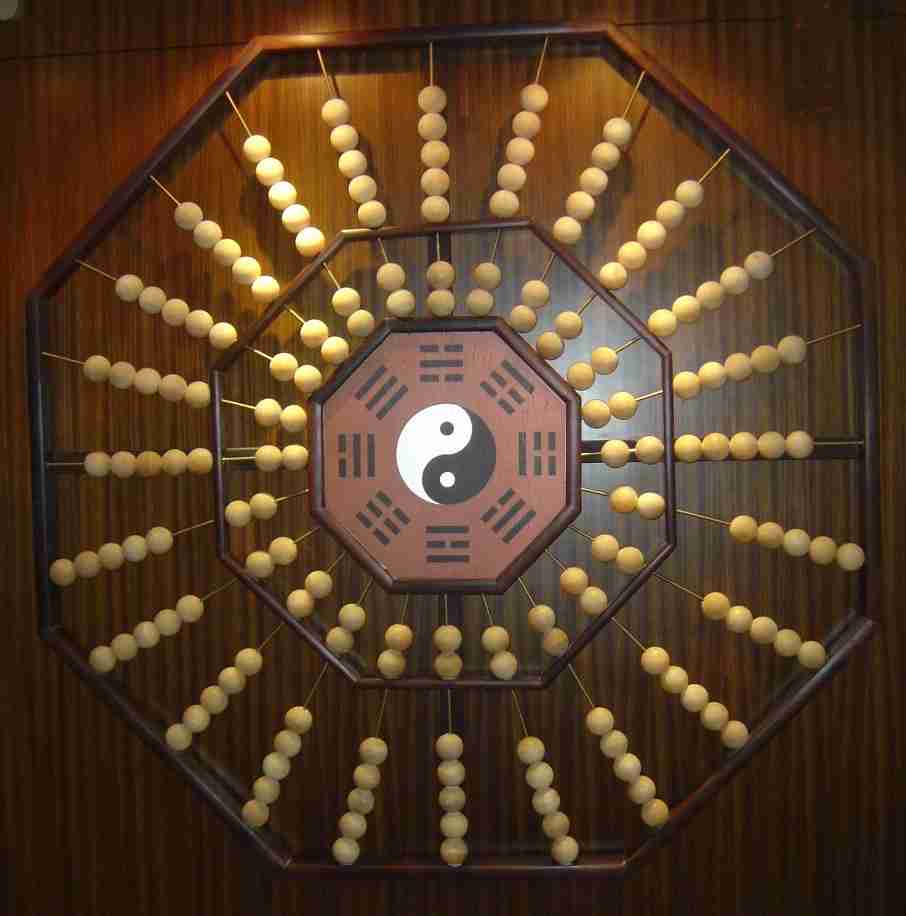
There are two main categories of rules that you need to adhere to in Feng Shui. These are the Compass School that is all about the astrological calculations that guide the combinations of lounges and the residents in a space. Though complex, it ensures accurate results and perfect feng shui.
The other school is based on the Feng Shui Octagon principle, bagua, which divides the space in question into 9 distinct areas, and a geometric figure is used in the design of the room/ building.
Both methods have been adapted in modern life and are practiced in the western world oftentimes.
These rules can be broken down into the following main principles:
- The commanding position
This is the spot in the house that is furthest from the door but also not directly aligned with the door, and if you’re standing, you’d be at a diagonal position from the door, but you still have a clean line of sight with the door. It is the dominant position, and you should keep it in mind when positioning things like your bed, working desk, or stove because these impact your individuality, career, and also your wealth, status, and nourishment.
- Bagua map
This map is important for room designs, and it guides floor plans. It is divided into 8 sections that correspond to things that affect you. You are at the center of the Bagua map, making up the 9th area.
- The 5 Elements
This is another important house rule, and it requires you to incorporate the 5 elements into your space.
Chinese feng shui symbols and meanings
- Yin and yang – it is a symbol of balance between opposite complementing, connected, and interdependent forces
- Bagua – it represents the 8 areas, and although it is mainly depicted in different iterations, the 8 areas represent an energy map, with you at the middle as the main component that joins all others.
- 4 emblems – these include the symbols of the 4 sacred or protector animals, and their layout is a symbol of protection for your home.
- Dragons – the dragon symbolized wisdom, protection, and prosperity, and also kindness.
- Tortoise – is a symbol of longevity.
- Goldfish or the carp – represents the power of positive transformation and our ability to welcome positive transformations.
- The 12 zodiac animals – symbolize true harmony.
- Flowers – these symbolize abundance, nature, beauty, and impermanence
- Fruits – they represent sweetness and abundance in the natural world
Feng shui tools
These include:
- Chinese feng shui compass
- Mirrors
- Color
- Sound
- Lighting
- Artwork
- Living Things
- Water
- Wind Elements
Chinese feng shui coins
The coins are symbols that are believed to have the power to bring good luck and positivity.
Chinese feng shui dragon
The dragon is an important element in feng shui that represents success, abundance, and good luck.
feng shui energy map
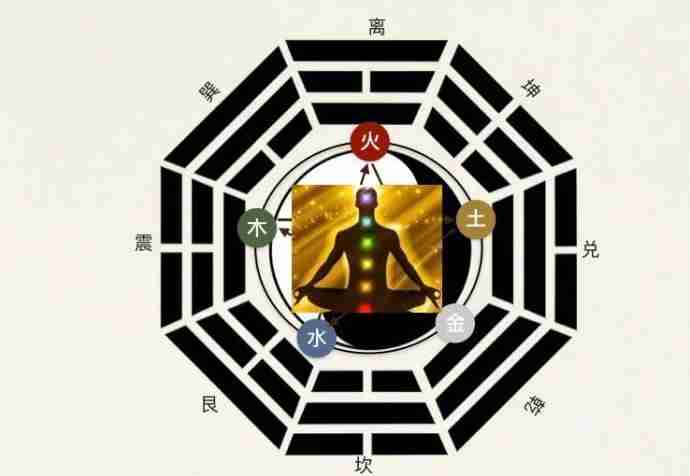
This map divides your house into 9 important and separate areas, and each relates to a specific theme. It offers a very systematic way of evaluating the space’s energy fields. There are 8 main fields and they are all made of 5 layers consisting of shapes, organs, elements, color, etc. It’s also believed to be interconnected with and made of other aspects of Chinese culture like yin and yang, the 5 elements, and the I-Ching. This energy grid guides your home’s floor plan and it will shrink and expand depending on the energy states in the space.
5 elements feng shui(Chinese Geomancy)
These 5 elements need to be incorporated in feng shui. The 5 main things that influence these elements include their qualities, color, shape, the season, and areas of life that they influence.
- Wood
- Fire
- Earth
- Metal
- Water
Chinese feng shui house direction
The most auspicious direction that a house is supposed to face in feng shui is the south because it is good in terms of light, family harmony, and chi absorption.
Is feng shui scientifically proven?
There is no scientific evidence that disregards feng shui and the associated spiritual claims. However, there are scientific discoveries that support and even explain how the principle of feng shui works.
What is my feng shui birth element calculator?
This is a calculator that would help you gain a better understanding of how your birth date influences and shapes your life.
Astrology vs. zodiac
Note that the zodiac is essentially an element of astrology, while astrology is all about the study of planetary positions and their alignment with celestial bodies and how the alignment affects the behavior or the future of an individual.
Zodiac vs. horoscope
And while the zodiac has to do with cosmic positions at the time of birth and the 12 signs (Aries to Pisces) for different planets; the horoscope has to do with predictions and the planetary depictions of specific times, and it is subjective because it has to do with things like motivations, personal characteristics, and future predictions.